Your WordPress website is a powerful tool for your business. It works hard for you, and a big part of its power comes from plugins. These add ons extend the functionality of your site, turning a simple blog into an online store, a booking system, or a full fledged marketing machine. The world of WordPress is always changing, and plugins are evolving right along with it.
So, what can we expect to see in the world of WordPress plugins by 2026? Things are moving fast, with a big focus on making your website smarter, faster, and more integrated than ever before. This article will explore the key trends shaping the future of WordPress plugins. We will look at artificial intelligence, better performance, and seamless connections with other tools. You will walk away with a clear picture of what’s coming and how you can prepare your business website for the future.
AI Powered Everything
Artificial intelligence, or AI, is the most significant change coming to WordPress plugins. AI is no longer a futuristic idea. It is a practical tool that will be built into many of the plugins you already use. It will make running your website easier and more effective.
Smarter Content Creation
Imagine a plugin that helps you write blog posts directly within WordPress. AI writing assistants are becoming common, and they will get even better. By 2026, plugins like Yoast SEO will likely have advanced AI features. These will not just check your grammar but also suggest topic ideas based on current trends. They may help you write entire sections of an article or optimize your content for search engines with incredible accuracy.
For a business owner, this means creating high quality content faster. You can save time while still connecting with your audience through valuable articles and pages.
Predictive Personalization
Personalization is key to a great user experience. Future plugins will use AI to analyze visitor behavior in real time. They will then automatically show personalized content, product recommendations, or special offers. For example, an e-commerce plugin like WooCommerce could use AI to show a returning customer products similar to their last purchase. This creates a unique experience for each visitor, which can lead to higher engagement and more sales.
This level of personalization was once only available to large corporations. Soon, it will be accessible to any business using WordPress.
A Laser Focus on Performance
Website speed is crucial. Slow websites lose visitors and rank lower in search results. Plugin developers know this, and the future of WordPress plugins is lightweight and fast. The days of bloated, slow plugins are numbered.
Block Based Architecture
The WordPress block editor, also known as Gutenberg, has changed how we build pages. More plugins will be built specifically for this block based system. This is great for performance because it means you only load the code needed for the specific blocks you use on a page. If you don’t use a feature, its code doesn’t slow down your site.
This modular approach is a core part of modern WordPress development. It helps keep websites nimble and quick.
Serverless and Edge Computing
This might sound technical, but the concept is simple. Instead of your website running on a single server in one location, parts of it can be processed on a global network of servers. This is called edge computing.
By 2026, we expect to see more plugins that leverage this technology. For instance, image optimization plugins might process your images on the edge, closer to your visitor’s location. This makes your images load much faster. Companies that provide these services are making it easier for plugin developers to integrate them. This means faster websites for everyone, without needing to be a tech expert.
Seamless Integrations and Workflows
Your business probably uses many different tools. You might have a CRM, an email marketing service, and a project management tool. The future of WordPress plugins is about making these tools work together seamlessly.
The Rise of the “Super Plugin”
Instead of installing ten different plugins for ten different tasks, you might only need one or two. We are seeing the rise of “super plugins” or toolkits. These are plugins that handle multiple functions, like marketing, SEO, and analytics, all in one package. Jetpack is an early example of this, but the trend will grow.
These plugins will connect to your other business software. For example, a form plugin like Gravity Forms might not just send you an email. It could automatically add the person to your email list in Mailchimp, create a new lead in your HubSpot CRM, and send a notification to your team’s Slack channel. This automates your workflows and saves you a huge amount of manual effort. We at MoDuet help businesses set up these kinds of automated systems every day.
Headless WordPress Gets Easier
Headless WordPress is an advanced setup where WordPress manages the content, but a different technology is used for the front end, or what the user sees. This can make websites incredibly fast and flexible. Historically, this has been complex to set up.
In the future, plugins will make headless WordPress more accessible. There will be plugins designed to connect your WordPress backend to popular front end frameworks with just a few clicks. This will allow more businesses to get the performance benefits of a headless setup without needing a large development team.
How to Prepare Your Website for 2026
The future of WordPress plugins is exciting. These changes will make your website more powerful and easier to manage. Here are a few practical steps you can take now to prepare.
- Audit Your Current Plugins: Take a look at the plugins you are using. Are any of them slow or no longer needed? Deactivate and delete any plugins you are not using.
- Choose High Quality Plugins: When adding new plugins, choose ones from reputable developers who provide regular updates. Look for plugins that are built with performance in mind.
- Embrace the Block Editor: If you are not already using the WordPress block editor, it’s time to start. It is the future of WordPress, and many new plugin features will be designed for it.
- Think About Your Workflow: Consider the different tools you use to run your business. Look for opportunities to connect them with your WordPress site to save time.
Conclusion
The WordPress ecosystem is constantly evolving, and the plugins that power our websites are getting smarter, faster, and more connected. By 2026, we will see AI deeply integrated into our content and marketing efforts. We will benefit from a new generation of high performance plugins built for the modern web. And our websites will become the central hub for our business operations through seamless integrations.
By staying informed and making smart choices about the plugins you use, you can ensure your WordPress website remains a valuable asset for your business for years to come. If you need help navigating these changes or optimizing your current website, our team at MoDuet is here to help you succeed.
We Want To Talk To You About Your Marketing Goals.
Let’s Supercharge Your Online Growth!











